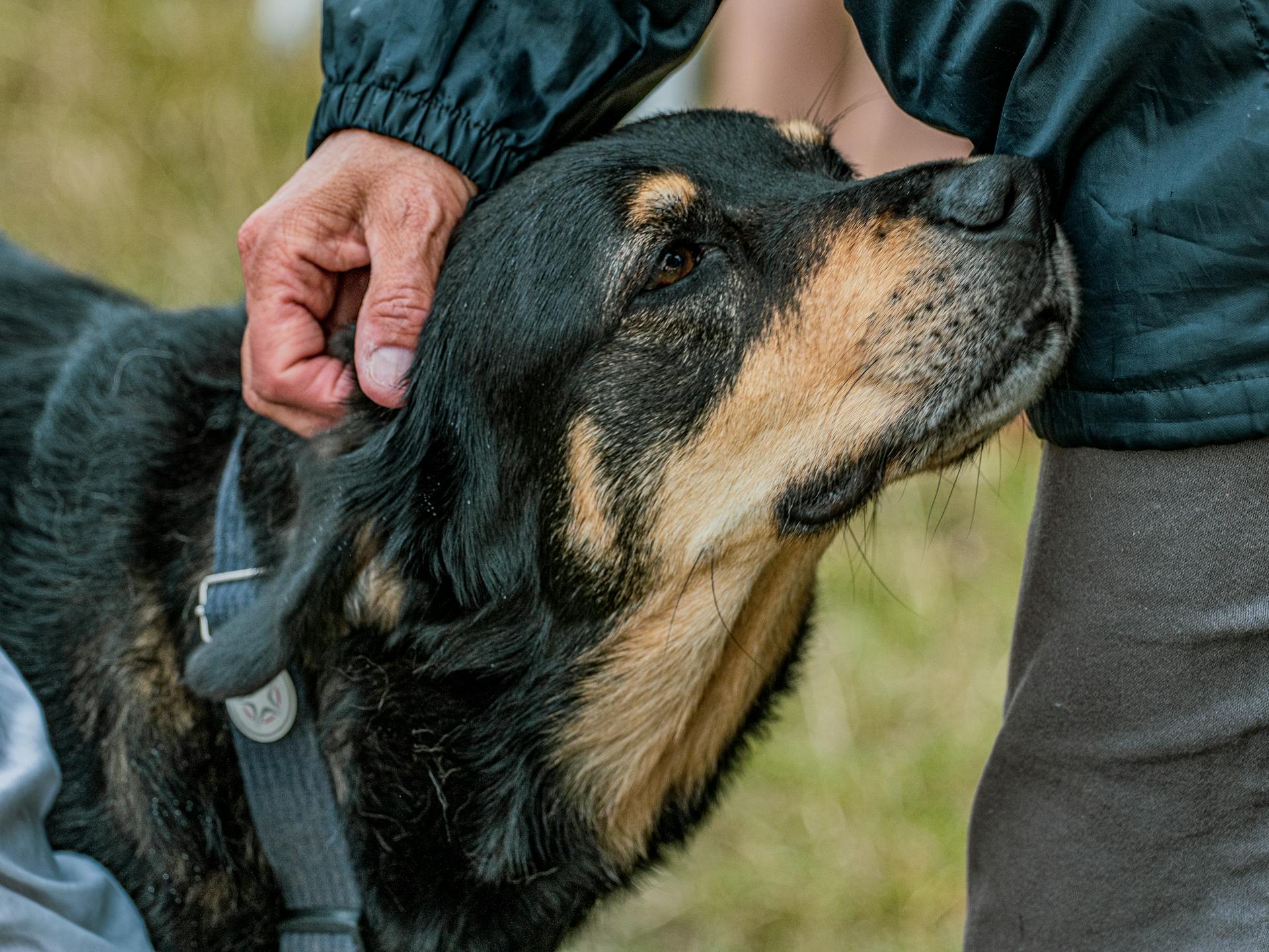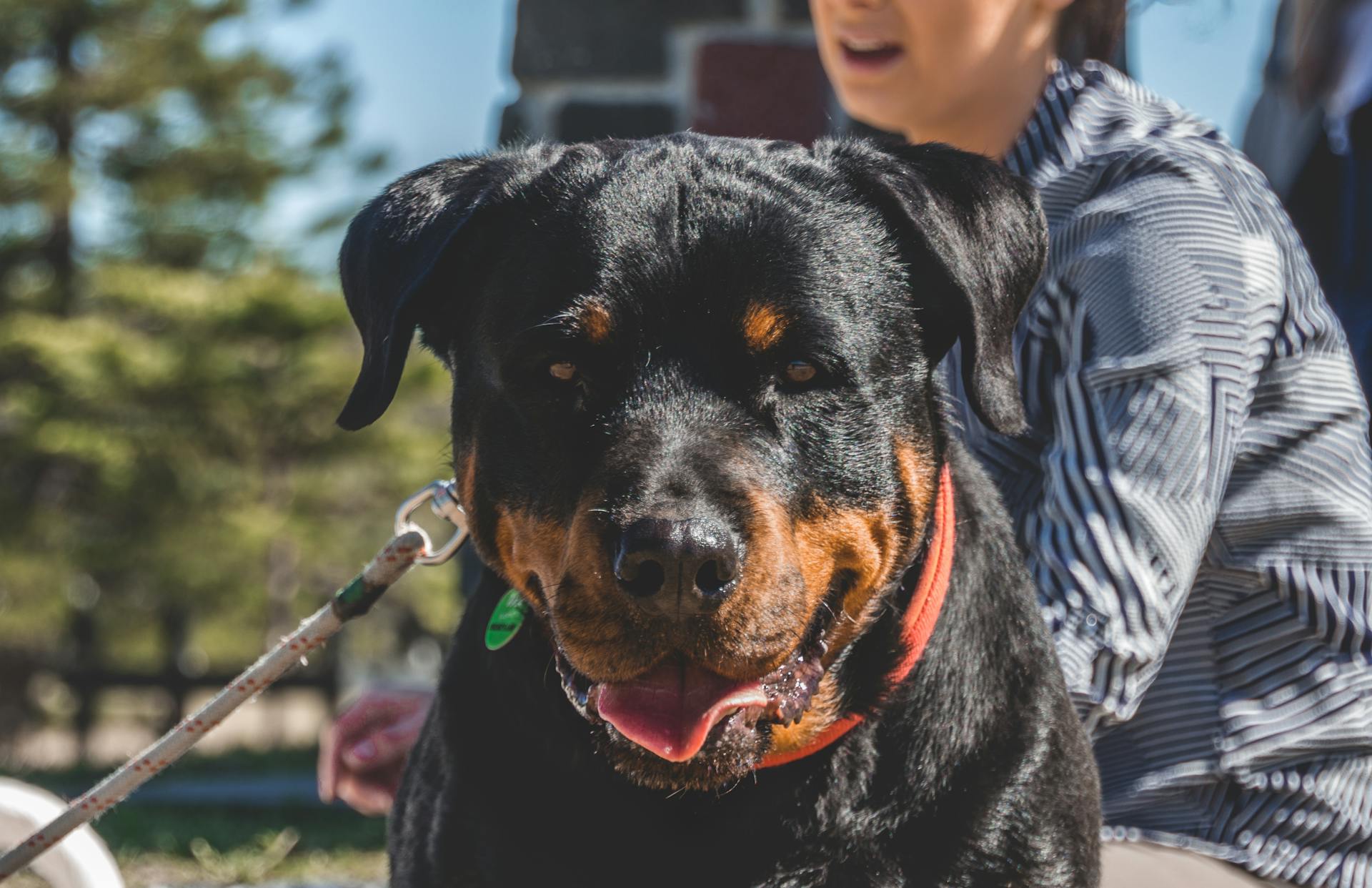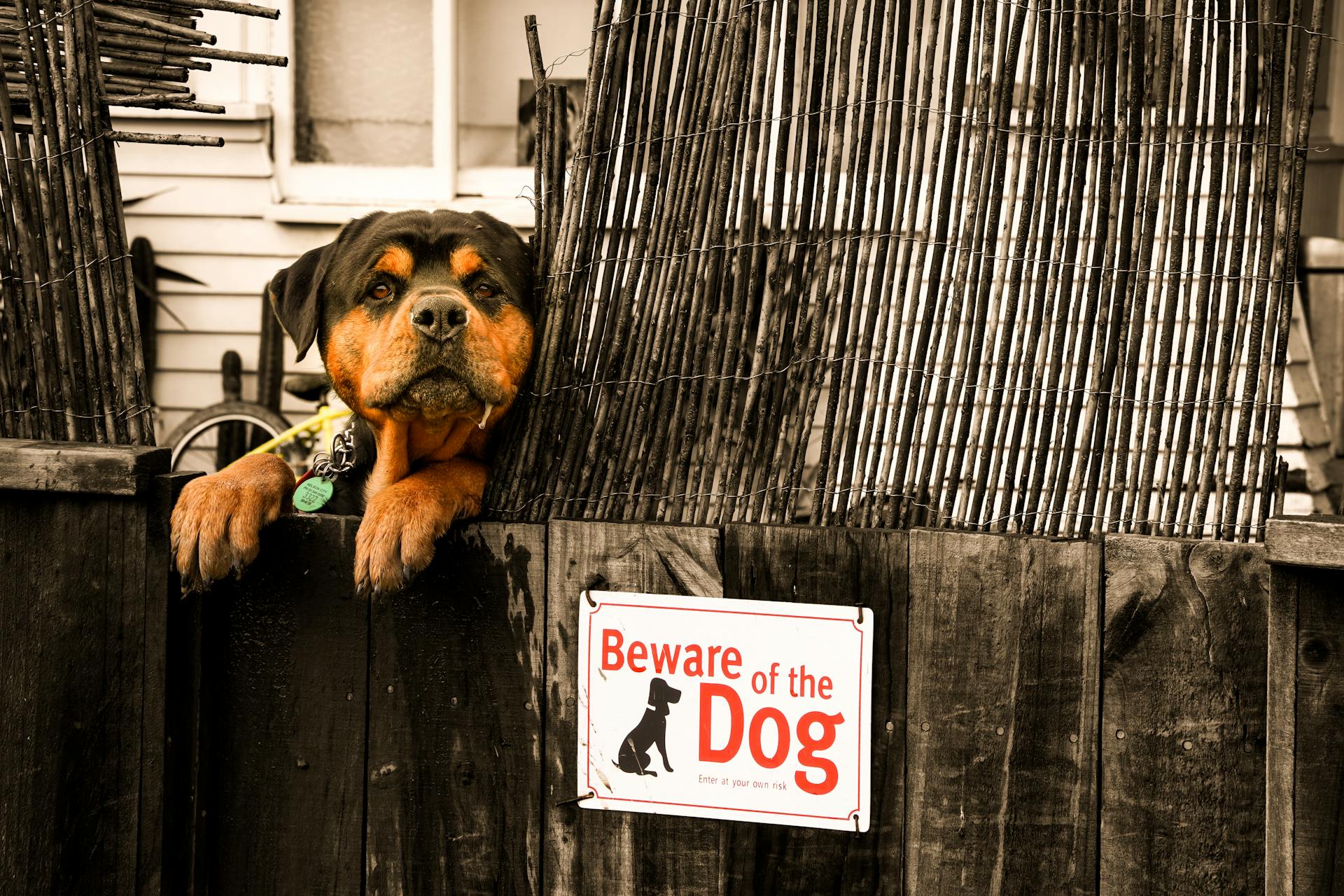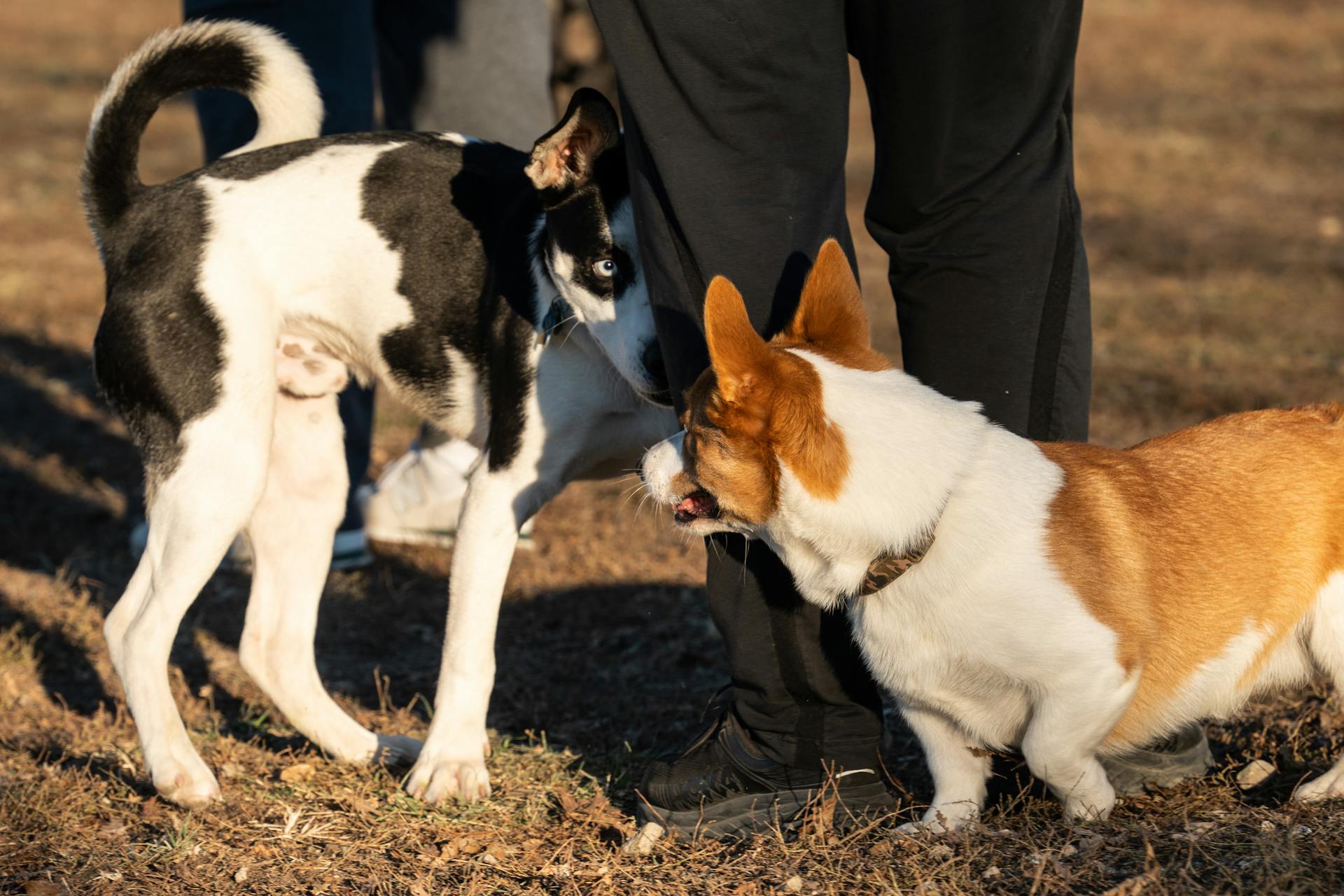
Rottweilers are often misunderstood, but understanding their behavior and interactions is key to a happy and healthy relationship. They're naturally protective of their families, but this doesn't mean they're aggressive.
Rottweilers are loyal and loving companions, but they can be wary of strangers. This is due to their herding background, where they were bred to guard livestock.
With proper socialization, Rottweilers can become confident and calm in new situations. They thrive on structure and clear communication, making them a great fit for active families.
Training is essential for Rottweilers, as they can be strong-willed and independent. Consistency and positive reinforcement are key to developing good habits and a strong bond.
About Rottweilers
The Rottweiler breed has a rich history dating back to the Roman era, but the modern Rottweiler originated in the early 20th century as a butcher's dog.
They were bred to be strong and powerful, with a considerable bite, making them perfect for herding and protecting livestock.
Rottweilers were also used to guard farmers and their carts, which is where their guarding qualities come from.
At home, Rottweilers are loving and loyal dogs, but they still retain some of their guarding instincts, so socialization from an early age is key.
Their trainability and somewhat aggressive look made them a popular choice as guard dogs for police and armed forces around the world.
To ensure your Rottweiler is a well-adjusted member of the family, make sure to provide plenty of love, training, and socialization from the start.
Understanding Rottweiler Behavior
Rottweilers communicate in unique ways, and one of those ways is through a low purring-like growl, also known as the "rottie rumble".
This rumble is a sign of happiness and contentment, often heard when they receive a hug or belly rub from their human.
A rottie rumble is distinct from an unhappy growl, which is something to be aware of as a responsible dog owner.
Rottweilers use this rumble to tell their humans they're enjoying the interaction, so pay attention to the difference in sounds.
If you're lucky enough to have a Rottweiler that makes this adorable sound, cherish it – it's a sign of a happy, loved pet.
Rottweiler Interactions
Rottweilers are naturally protective of their families, which is why they make great guard dogs, but they also have a softer side - they are loving and loyal companions.
Their guarding qualities can be managed with proper socialization and training from a young age, making them wonderful family pets.
Rottweilers are strong and powerful dogs, but they're not all about aggression - they can even purr when they're happy, producing a low rumble or growl that's often mistaken for a negative sound.
This "rottie rumble" is a sign that your Rottweiler is content and enjoying the attention, so be sure to listen for the difference between this and an unhappy growl.
Rottweilers are intelligent and trainable, which is why they're often used by police and armed forces as guard dogs, but with the right care and attention, they can be loving and loyal companions at home.
Their large size and strength require regular exercise and mental stimulation, but with a loving owner, they'll be happy to curl up and enjoy a good cuddle.
Frequently Asked Questions
What is a Rottweiler purr?
A Rottweiler's "purr" is a deep, rumbling noise they make when content and happy, often in response to attention from their human. This unique sound is sometimes referred to as the "Rottweiler rumble
Featured Images: pexels.com


